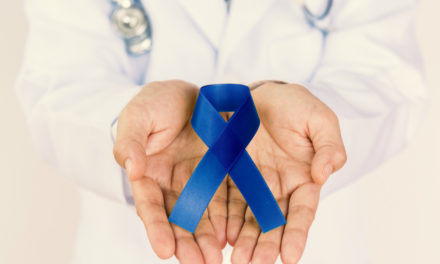Everyone has a typical understanding of allergies. Whether it’s seasonal allergies, allergic asthma, or severe reactions like anaphylaxis, allergic reactions are very common. In fact, it’s estimated that 1 in 5 people in the United States suffer from some kind of allergy symptoms.
With this familiarity, there is also a lot of misinformation regarding the development and treatment of allergies. So let’s take a moment to separate fact from fiction!
Allergist, Dr. Roland Honeine has helped patients of all ages identify and treat their allergies. Here’s what he had to say about some of the most common allergy-related questions:

Roland Honeine, MD
Allergist/Immunologist, Buffalo Medical Group
Do allergies really change in seven-year cycles?
I have heard this myth throughout the years, “My body changes every 5 years,” or “My immunity flips every 7 years.”
The truth is that your body changes every day. Your body adapts to the environment it is in, and adjusts your heart rate, skin temperature, mucus production, and breathing based on what you experience. Your immune system encounters threats all the time (bacteria in soiled items, fungus in the air or ground, viruses in sneezes) and responds to them appropriately. Allergic symptoms happen when your immune system inappropriately reacts to biological items such as pollen, food, or pet dander.
As we go through different phases of our lives, our environments change (move out to college, adopt a new pet, get a job out of town). Our immune system will get exposed to new items and lose exposure to others. New allergies may develop, while older allergies improve.
So, to summarize, no the allergies do not change after a set number of years (5 or 7), but they do change based on people’s exposure to different environments.
Are children more likely to have their allergies change than adults?
Not necessarily. Children grow, and as they develop, their bodies and their immune system go through different phases.
At the age of 5-6 years, some children, previously diagnosed with asthma or reactive airway disease, will no longer experience breathing problems. Some food allergies are outgrown, while other allergic reactions worsen.
During puberty, the development or changing of allergy symptoms increases, particularly for hay fever, asthma, and dermatitis. This is mostly due to the hormonal fluctuations during puberty.
Unfortunately, we cannot predict if an allergy will improve with age. However, by frequently evaluating the allergic child, we can gauge the improvement or worsening of their allergies and adjust their treatments accordingly.
Why do adults sometimes experience an onset of allergies?
As discussed earlier, allergies change with environmental exposures.
However, in adults, symptoms may also occur from irritants, such as smoke and strong odors, or changes in the temperature and humidity. This happens because allergic rhinitis causes inflammation in the nasal lining, which increases sensitivity to inhalants.
At least 1 out of 3 adults with rhinitis symptoms do not have allergies. Non-allergic rhinitis usually afflicts adults and causes year-round symptoms, especially runny nose and nasal congestion. This condition differs from allergic rhinitis, because the immune system is not involved.
What tips do you recommend to relieve seasonal allergies?
Let us first review seasonal allergies. Tree pollen is typically prevalent outdoors from April through May. Grass pollen occurs from May through late July. Ragweed pollen is present from mid-August through the frost. Outside molds levels vary depending on the moisture in the soil and the air temperature.
There many over-the-counter therapies for seasonal allergies:
Newer generation antihistamines such as Zyrtec (cetirizine), Allegra (fexofenadine), Claritin (loratadine), Clarinex (desloratadine) and Xyzal (levocetirizine) last longer, cause less side effects and are better tolerated than older generation antihistamines, such as Benadryl.
Decongestants should not be used to treat seasonal allergies because of a “rebound effect” if used for more than three or four days in a row. This rebound causes the stuffy nose to become more severe.
Nasal saline rinses help with symptoms by cleaning the nasal passages from pollen and mucus. However, the relief is short-lived.
Nasal steroids are the mainstay of treatment for seasonal allergies. It is important to note that these are not like body-building, or anabolic steroids. Nasal steroids take several days to start working. They should be sprayed in the nose, pointed away from the septum (midline of the nose).
If over-the-counter treatments are not helpful, discuss your symptoms with your healthcare provider, who can adjust your treatments or refer you to an allergy specialist.
When should someone seek medical treatment for seasonal allergies?
Even though most allergy medications are available over-the-counter, consulting your healthcare provider is sometimes necessary. Sinus or ear infections should be managed by your healthcare provider as soon as they develop. Your primary care physician may be able to adjust your treatments based on your symptoms.
Your allergist may also recommend allergy immunotherapy, also known as allergy shots or tablets. This treatment involves receiving injections or taking tablets periodically over a period of five years. These treatments have been proven effective in decreasing sensitivity to allergens, sometimes permanently.
Seasonal allergies also make asthma worse for many allergic patients. Treating the nasal allergies with over-the-counter medications will not help the asthma. If you experience worsening asthma symptoms, you should immediately contact your healthcare provider.
Find an Allergist Near You
Call (716) 706-2112
Find an Allergist Near You
Call (716) 706-2112





